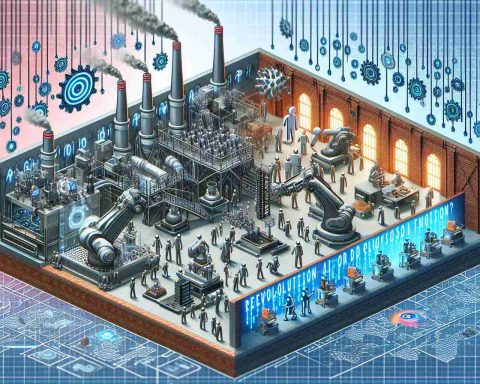OpenAI CEO Sam Altman is on the hunt for billions of dollars in capital to address the growing shortage of AI chips. According to sources familiar with the matter, Altman has approached several companies, including G42 and Softbank, for financial assistance.
The increasing demand for neural network accelerators has prompted Altman to take action. He believes that the current supply of processors is inadequate to meet the needs of the market. Without enough processors, remote services may experience slowdowns or limited deployment, negatively impacting user experience. Additionally, individuals looking to use AI technology on their own infrastructure may struggle to find the necessary parts.
An analysis by the Uptime Institute supports Altman’s concerns, predicting that the silicon supply shortage will hamper widespread AI deployments in the coming years.
However, funding such a project is no small feat. A single chip factory can cost anywhere from $10 billion to $20 billion, and it typically takes several years to complete. OpenAI’s plan seems to involve investing in leading-edge chip manufacturers like TSMC, Samsung Electronics, and possibly Intel, rather than building their own facilities. This approach would involve supporting these manufacturers to increase their production of AI chips.
TSMC, in particular, stands out as a prime candidate for partnership. It is already responsible for manufacturing GPUs and AI accelerators for companies like Nvidia, AMD, and Intel. TSMC’s chairman, Mark Liu, has previously indicated that the bottleneck in chip supply is related to advanced packaging technology rather than foundry capacity. It is believed that investing in advanced packaging facilities could help address the supply constraints more efficiently.
To overcome the AI chip shortage in the long run, Altman and his partners may need to invest in a combination of fabrication and packaging facilities. This approach would not only increase the production of AI processors but also speed up the resolution of supply bottlenecks.
FAQ Section:
Q: What is OpenAI CEO Sam Altman seeking funding for?
A: Sam Altman is seeking funding to address the growing shortage of AI chips.
Q: Why does Altman believe there is a shortage of AI chips?
A: Altman believes that the current supply of processors is inadequate to meet the needs of the market.
Q: What are the potential consequences of the shortage of AI chips?
A: The shortage of AI chips could result in slowdowns or limited deployment of remote services and make it difficult for individuals to find the necessary parts for using AI technology on their own infrastructure.
Q: What does the Uptime Institute predict regarding the silicon supply shortage?
A: The Uptime Institute predicts that the silicon supply shortage will impact widespread AI deployments in the coming years.
Q: How much does it typically cost to build a single chip factory?
A: It typically costs anywhere from $10 billion to $20 billion to build a single chip factory.
Q: What is OpenAI’s plan to address the shortage of AI chips?
A: OpenAI’s plan involves investing in leading-edge chip manufacturers like TSMC, Samsung Electronics, and possibly Intel, rather than building their own facilities.
Q: Why is TSMC considered a prime candidate for partnership?
A: TSMC is responsible for manufacturing GPUs and AI accelerators for companies like Nvidia, AMD, and Intel, and its chairman, Mark Liu, has indicated that the bottleneck in chip supply is related to advanced packaging technology rather than foundry capacity.
Q: What combination of facilities may be necessary to overcome the AI chip shortage in the long run?
A: Altman and his partners may need to invest in a combination of fabrication and packaging facilities to increase production and address supply bottlenecks more efficiently.
Key Terms and Definitions:
1. AI chips: Also known as neural network accelerators, these are specialized processors designed to handle artificial intelligence workloads efficiently.
2. Silicon supply shortage: Refers to the insufficient availability of silicon chips, which are essential components used in the production of AI chips.
3. Foundry capacity: The maximum production capacity of a semiconductor fabrication facility (foundry) for chip manufacturing.
4. Advanced packaging technology: The techniques and processes used to package integrated circuits, enhancing their performance, power efficiency, and functionality.
Suggested Related Links:
– TSMC: Official website of Taiwan Semiconductor Manufacturing Company, a leading chip manufacturer mentioned in the article.
– Nvidia: Official website of a company that relies on TSMC for manufacturing GPUs and AI accelerators.
– AMD: Official website of a company that also relies on TSMC for manufacturing GPUs and AI accelerators.
– Intel: Official website of a chip manufacturer mentioned as a potential partner in the article.
The source of the article is from the blog yanoticias.es








